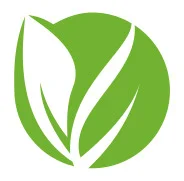Natural Remedies and Supplements for High Blood Pressure
High blood pressure, also known as hypertension, is a common health condition that affects millions of people worldwide. If left untreated, it can increase the risk of heart disease, stroke, and other serious health problems. While medication is often prescribed to manage high blood pressure, there are also natural remedies and supplements that can help lower blood pressure levels. In this article, we will explore some of these natural remedies and supplements and discuss their potential benefits.
1. Garlic
Garlic has been used for centuries as a natural remedy for various health conditions, including high blood pressure. It contains a compound called allicin, which has been shown to have antihypertensive effects. Studies have found that garlic supplements can help lower blood pressure levels, especially in individuals with hypertension. However, it is important to note that garlic supplements should be used with caution, especially if you are taking blood-thinning medications or have a bleeding disorder. It is always best to consult with a healthcare professional before starting any new supplement.
2. Hawthorn
Hawthorn is a plant that has been used in traditional medicine for its cardiovascular benefits. It is believed to help dilate blood vessels, improve blood flow, and lower blood pressure. Several studies have shown that hawthorn supplements can help reduce both systolic and diastolic blood pressure levels. Additionally, hawthorn has antioxidant properties that can protect the heart from damage caused by free radicals. As with any supplement, it is important to follow the recommended dosage and consult with a healthcare professional.
3. Fish Oil
Fish oil is rich in omega-3 fatty acids, which have been shown to have numerous health benefits, including reducing inflammation and improving heart health. Several studies have found that fish oil supplements can help lower blood pressure levels, especially in individuals with hypertension. Omega-3 fatty acids can help relax blood vessels, improve blood flow, and reduce the risk of heart disease. It is important to choose a high-quality fish oil supplement and follow the recommended dosage.
4. Coenzyme Q10
Coenzyme Q10, also known as CoQ10, is a naturally occurring compound that plays a vital role in energy production within cells. It is also a powerful antioxidant that can help protect the heart from oxidative stress. Several studies have found that CoQ10 supplements can help lower blood pressure levels, especially in individuals with hypertension. CoQ10 works by improving endothelial function, reducing oxidative stress, and promoting the dilation of blood vessels. As with any supplement, it is important to consult with a healthcare professional before starting CoQ10.
5. Magnesium
Magnesium is an essential mineral that plays a crucial role in various bodily functions, including regulating blood pressure. Studies have shown that magnesium supplementation can help lower blood pressure levels, especially in individuals with hypertension. Magnesium works by relaxing blood vessels and improving blood flow. It is important to note that magnesium supplements should be used with caution, especially if you have kidney problems or are taking certain medications. It is always best to consult with a healthcare professional before starting any new supplement.
6. Potassium
Potassium is another essential mineral that is important for maintaining healthy blood pressure levels. It helps balance the effects of sodium in the body and promotes the relaxation of blood vessels. Studies have shown that increasing potassium intake through diet or supplementation can help lower blood pressure levels, especially in individuals with hypertension. Foods rich in potassium include bananas, avocados, spinach, and sweet potatoes. However, it is important to consult with a healthcare professional before starting any new supplement.
Conclusion
While natural remedies and supplements can be beneficial in managing high blood pressure, it is important to remember that they should not replace prescribed medication or lifestyle changes recommended by a healthcare professional. It is always best to consult with a healthcare professional before starting any new supplement to ensure that it is safe and appropriate for your individual needs. Additionally, it is important to maintain a healthy lifestyle, including regular exercise, a balanced diet, and stress management, to effectively manage high blood pressure.

